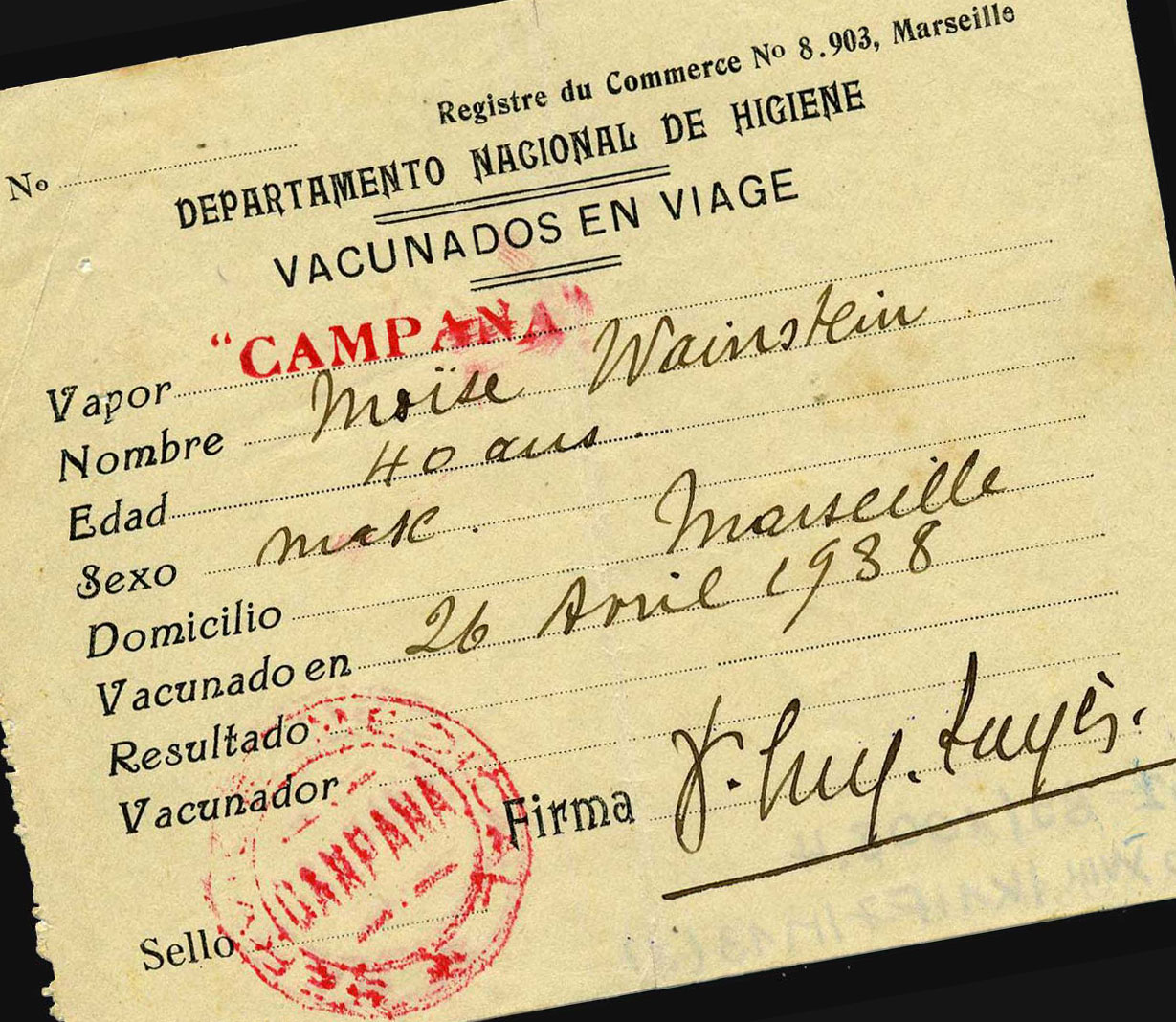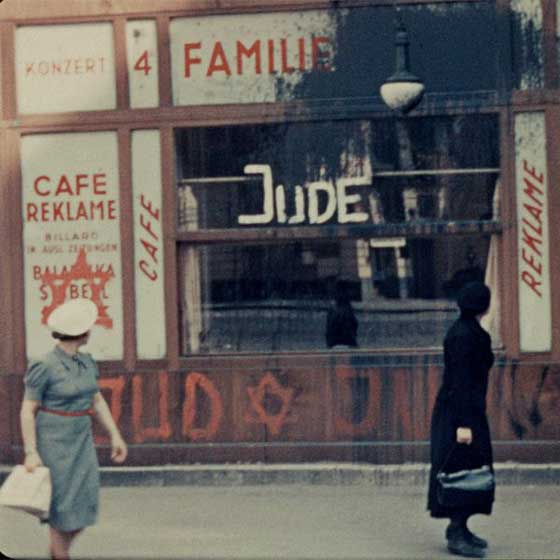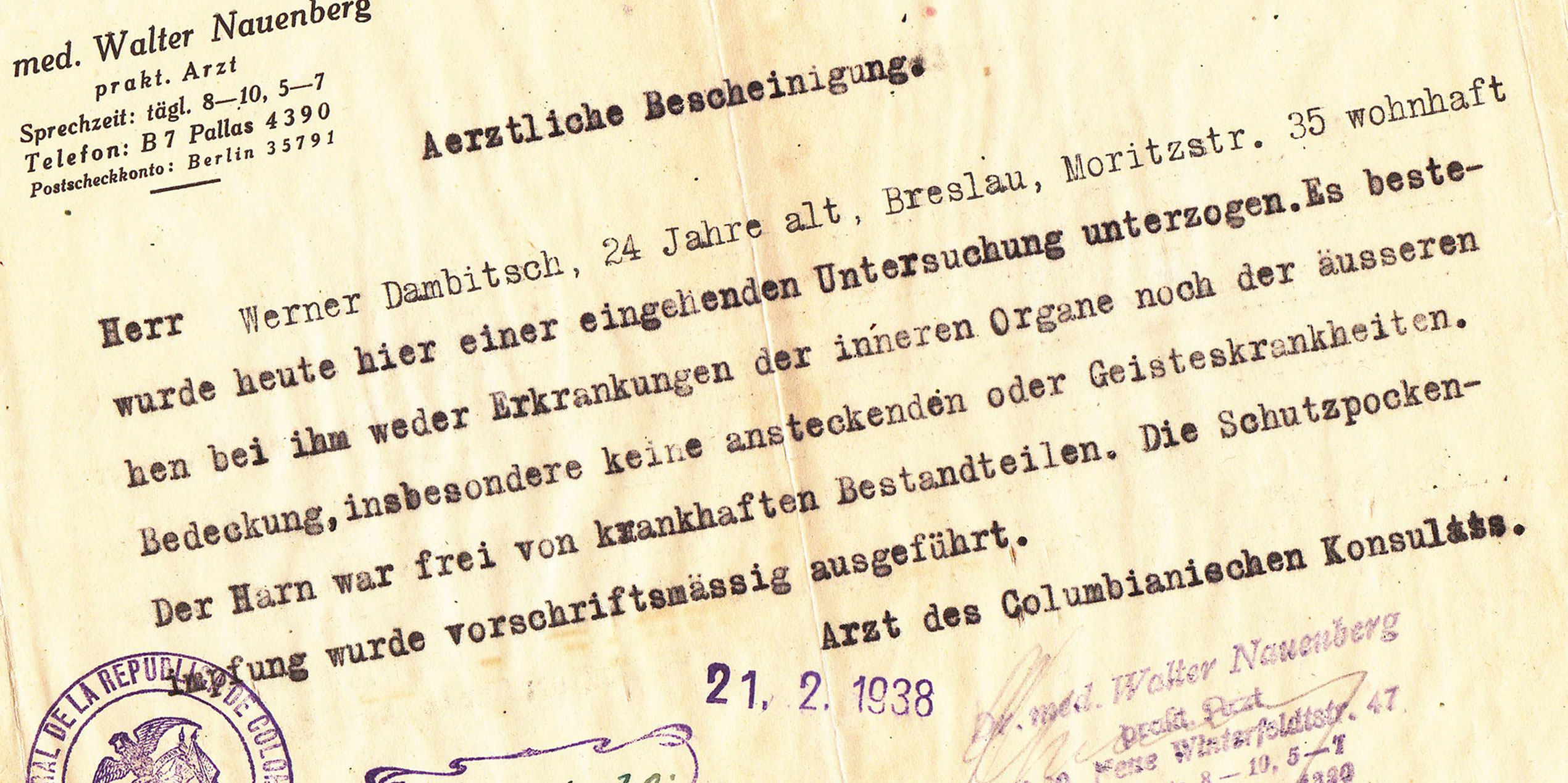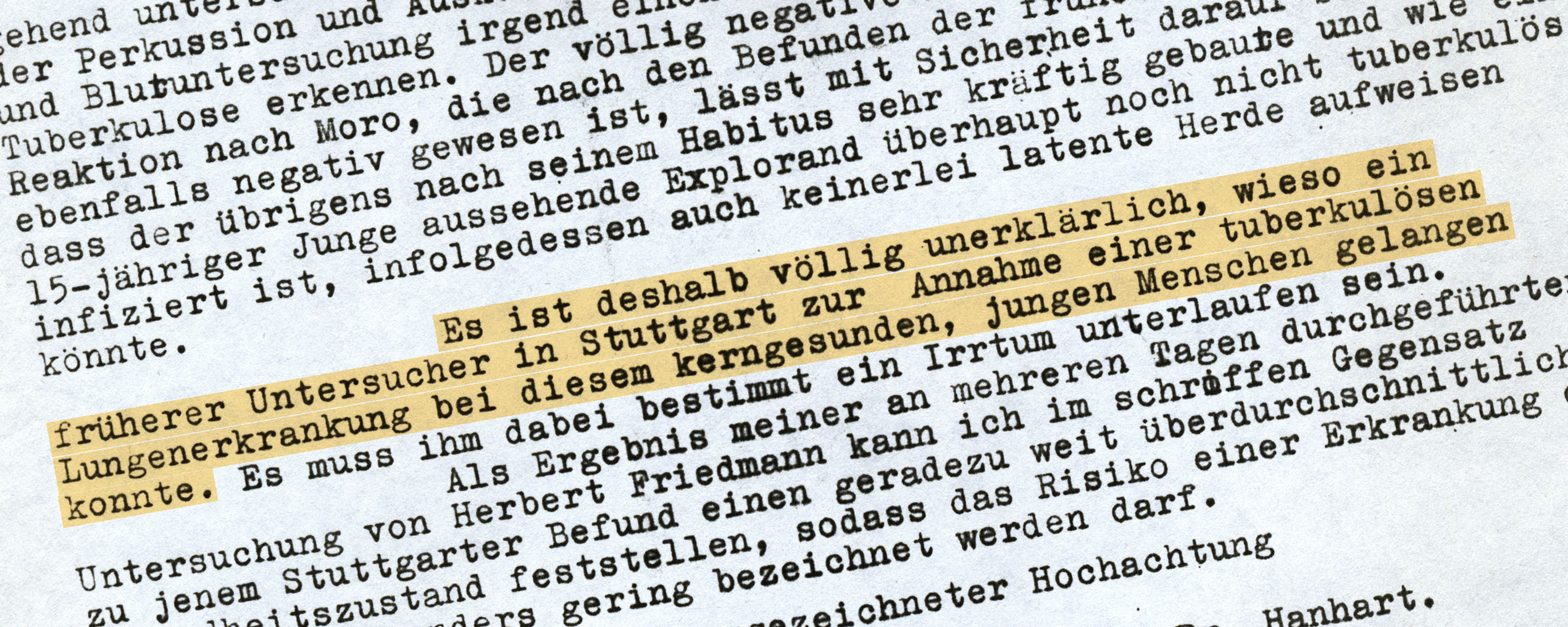Starting over at 40
Moses Wainstein overcomes the hurdles of international bureaucracy

Marseille
Marseille was one of the most important ports of departure for the refugees on their way overseas. It was here that Moses Wainstein obtained the papers he still needed for his emigration to Uruguay. This certificate of vaccination was written in Spanish for submission to the authorities there. The former Berliner had already had his belongings shipped to Marseille by a German company. Wainstein was 40 years of age at this point.
SOURCE
Institution:
Original:
Vaccination certificate issued on the steamer “Campana” for Moses Wainstein; Inv. No.: Do2 89/1008.4
Chronology of major events in 1938
Jews ordered to declare financial assets

A Jewish business vandalized in Vienna. United States Holocaust Memorial Museum.
Herman Göring issues an order requiring Jews to declare all assets exceeding 5,000 Reichsmark. This includes assets at home and abroad. Those who do not comply face financial penalties as well as prison. Alf Krüger, the Minister of Economics, declares that the new regulations “pave the way for the complete and lasting elimination of Jews from the German economy.” Three days later, in a meeting at Göring’s offices in the Aviation Ministry, they resolve “to transform Jewish assets in a way that does not allow for Jews to have any further influence on the economy.” Göring will later reveal that this meeting also resulted in a plan to “Aryanize” the German economy. He explains: “[…] First, the Jew being ejected from the economy, transfers his property to the state. He will be compensated. The compensation is to be listed in the debit ledger and shall bring a certain percentage of interest. The Jew shall have to live out of this interest.” After the November pogroms, the National Socialists use the financial data collected to force Jews to hand over a quarter of their assets to the National Socialist authorities. When efforts to make restitution begin after the end of World War II, these same data help identify rightful beneficiaries.
View chronology of major events in 1938










































